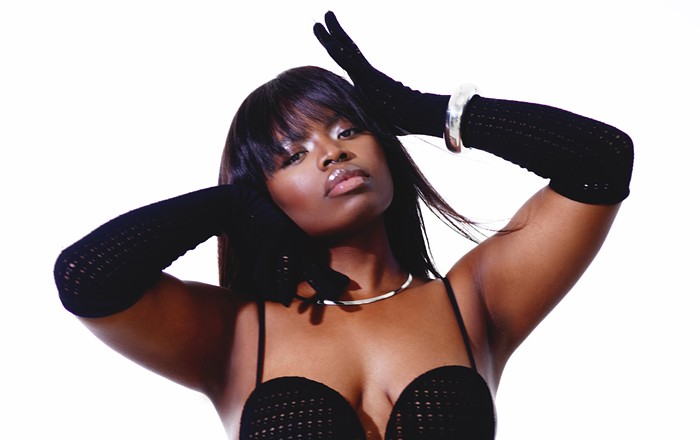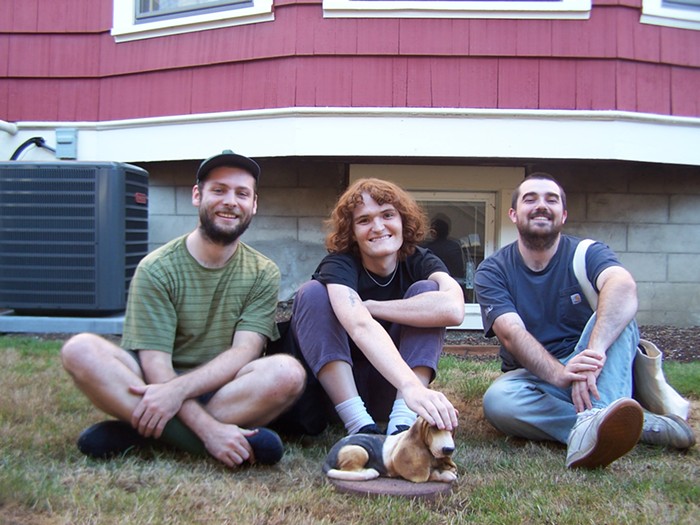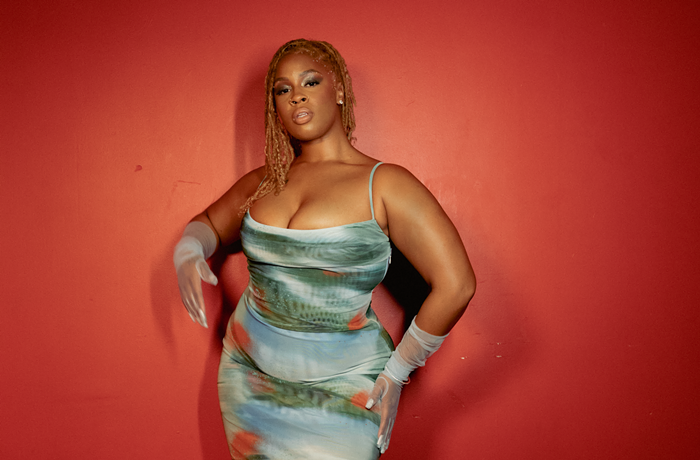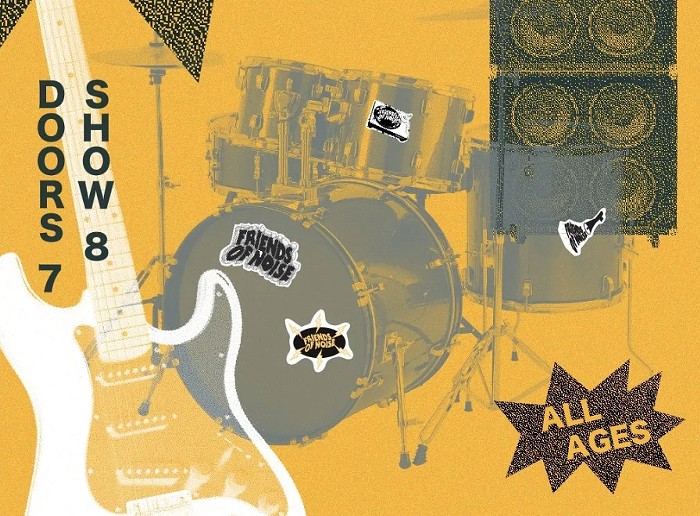Shabazz Palaces’ mastermind Ishmael Butler walks and talks as if he’s just had the best sex of his life. His voice, a laidback drawl, exudes radiant cool, and even the slightest movement—a tilt of the head, a handshake—is chill. He has the unparalleled nonchalance of Herbie Hancock, Stevie Wonder, and Lou Reed—people so gifted, they don’t ever need to get in your face about their talents. They vivify the air in any room they occupy, rivet you with their charisma and the casual sagacity of their utterances. Even when Butler murmurs an offhand “yeah,” it’s musical.
Butler won a Grammy Award for Digable Planets’ 1993 smash hit “Rebirth of Slick (Cool Like Dat)”—but instead doing what other 1990s rappers did, fading away or slipping into irrelevance, Butler has flipped the script on the usual artistic trajectory and created his most adventurous music 20 years on with Shabazz Palaces, which also includes producer Erik Blood and percussionist Tendai Maraire. To date, they’ve released two albums and two EPs, and they are about to issue two more full-lengths.
While Digable contemporaries like De La Soul, A Tribe Called Quest, and Kool Keith have maintained relatively high quality control over the ensuing decades, they haven’t evolved like Butler has done with Shabazz Palaces.
Given Shabazz Palaces’ continual ascent, though, it’s strange that Seattle native Butler (AKA Butterfly) would revive Digable Planets. They’ll continue to tour the United States just before Shabazz Palaces’ two new albums drop on July 14 on Sub Pop: Quazarz: Born on a Gangster Star and Quazarz vs. the Jealous Machines.
Though he split with fellow MCs Mary Ann “Ladybug Mecca” Vieira and Craig “Doodlebug” Irving in 1995 due to that ubiquitous euphemism “creative differences,” Ish (as he is known to his friends) refuses to divulge details. Digable Planets returned to the live circuit from 2005 to 2011, took four years off, and then resumed sporadic touring in 2015.
Why go backward, when so much of Shabazz is about looking forward? As Butler, who composes all of Shabazz’s music and lyrics, explains, when promoters and fans clamor for your presence, it’s hard to refuse. It’s also a testament to the durability of Digable Planets’ two albums, Reachin’ (A New Refutation of Time and Space) and Blowout Comb. The trio’s ingenious adaptation of jazz samples, consciousness-raising lyrics, and uncanny vocal interplay have aged better than most mid-’90s rap efforts. But rather than wallow in nostalgia over canned tracks from those beloved records, Digable assembled a live band composed of Seattle all-stars like keyboardist Darrius Willrich, guitarist Thaddeus Nelson, drummer Conrad Real, bassist Gerald Turner, plus Shabazz’s Maraire in order to revamp them for contemporary ears.
“That music being so old, it wasn’t in the forefront of our social or creative landscape,” Butler says when asked about the motivation to tour this quarter-century-old material. “But when you hear people are excited about you performing, that’s not something I can turn away from. It becomes about not you as a person, but about the music that you made at a certain time, and it still lives.”
When Digable Planets won their Grammy in 1994, that award wasn’t exactly revered by hip-hop’s vanguard—including Digable themselves. They went up against Snoop Dogg and Cypress Hill, and Butler admits that he was surprised Digable triumphed, as both Snoop and Cypress had higher profiles and bigger fan bases. “I didn’t know much about the Grammys. I didn’t invest much into it, but the event was one of the most amazing ceremonies I’ve ever been to. Bono was there presenting an award to Frank Sinatra. Aretha Franklin was there. We played ‘Cool Like Dat’ and had [jazz trumpeter] Clark Terry playing in the band. It was pretty dope.”
Not many Grammy winners can be found walking around Seattle, but Butler says it’s hardly ever mentioned. “That’s ancient history now. I’m proud of it. But it also lets me know that things happen over the course of a career, the highs and lows. For most people who do music, it’s not something you sustain at the highest level for a long period of time. It ebbs and flows. You can have that in your career and still be doing other stuff later on... It’s just a memory, not a paramount thing in my mind. But it’s cool to think about.”
Butler’s odd career arc—huge commercial success early on, then a precipitous dip in profile (who remembers his early-’00s band Cherrywine?), and then a renaissance to auspiciousness with Shabazz Palaces. In any musical genre, it’s rare for someone to come back after that long and do innovative work.
“I think radical disruptions can be a part of a continuum—and usually are,” he says. “One thing I realized is, I did have a passion for music after Digable, but there was no question in my mind that my commercial music career was over. First of all, I was getting older. I didn’t think rap was something people over 30 or 35 years old should even participate in. I thought it was a youth thing, and to a certain extent I still do.
“But I just realized that it’s not about a genre. I was making music with equipment in my house every day with absolutely no notion of releasing it commercially. Mostly because if I did have that notion to try to pursue it, there was no one in their right mind who would want to partner up with me in that endeavor. But I was still making music, mixing, trying to get shit right. That’s what gave me the energy to even think forward.”


















